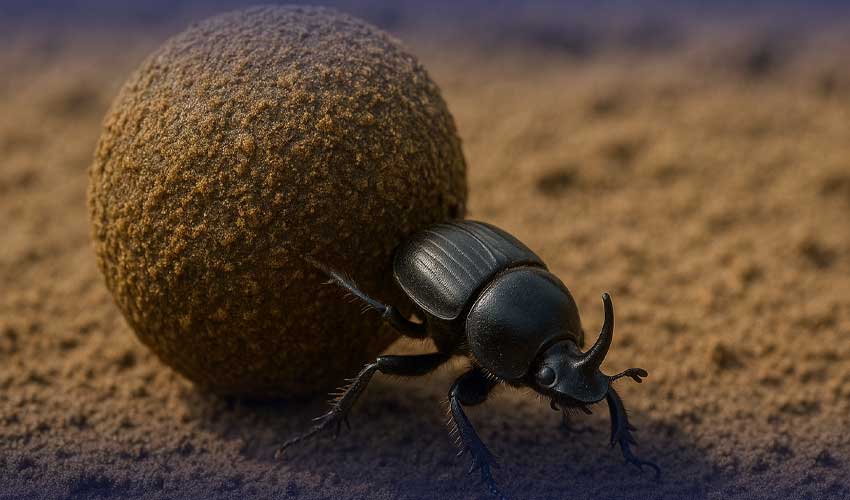Researchers have confirmed that the humble dung beetle, particularly the Onthophagus taurus species, holds the title of the world's strongest insect relative to its size.
This tiny creature demonstrates extraordinary physical prowess by pulling up to 1,141 times its own body weight—an achievement unmatched in the insect world. To put this remarkable strength into perspective, it would be equivalent to a human pulling several elephants simultaneously.
"The strength-to-weight ratio of the Onthophagus taurus is truly unprecedented in the animal kingdom," said Dr. Sarah Jennings, entomologist at the Global Insect Research Institute, who was not involved in the original research but has studied dung beetles extensively.
The beetle's impressive strength serves a practical purpose in its daily activities. These insects collect animal dung, form it into balls, and then transport these relatively massive structures by pulling them across varied terrain before burying them underground. This laborious process creates the perfect environment for the beetles to lay their eggs.
Found on every continent except Antarctica and the Arctic, dung beetles play a vital ecological role, particularly in Africa where they help maintain environmental balance. Their dung-processing activities improve soil fertility, reduce pest populations, and aid in seed dispersal across ecosystems.
"Without dung beetles, many ecosystems would struggle with waste accumulation and nutrient cycling inefficiencies," explained Dr. Marcus Chen, ecological systems researcher at Pacific University.
The beetles' global distribution spans Africa, Asia, South America, Australia, and Europe, with each region hosting specialized species adapted to local conditions.
Recent conservation efforts have focused on protecting these small but mighty insects, as their populations face threats from habitat loss, pesticide use, and changes in agricultural practices.
As scientists continue studying these remarkable creatures, the Onthophagus taurus stands as a testament to how even the smallest organisms can possess extraordinary capabilities that defy expectations.


























